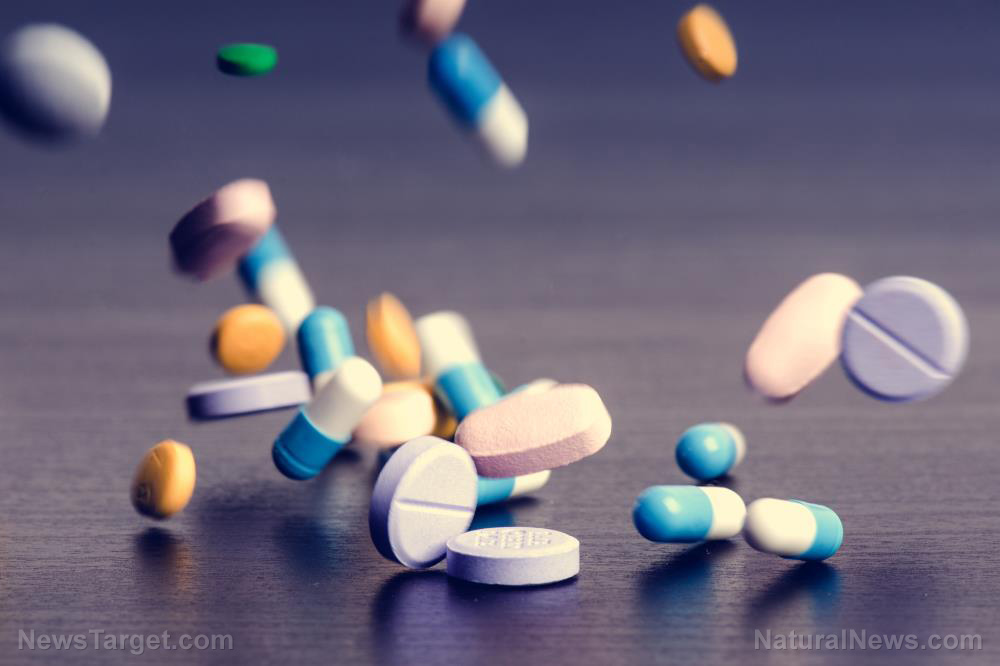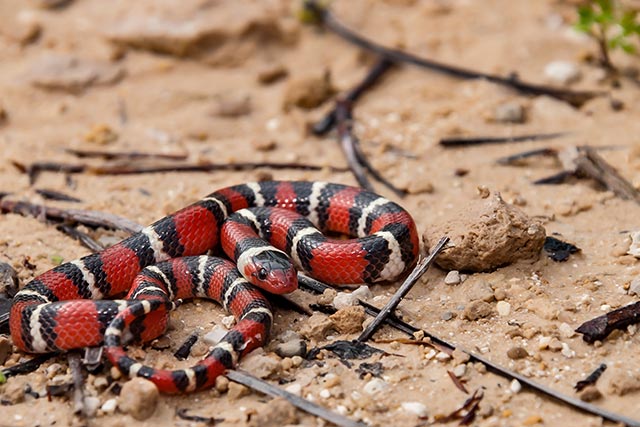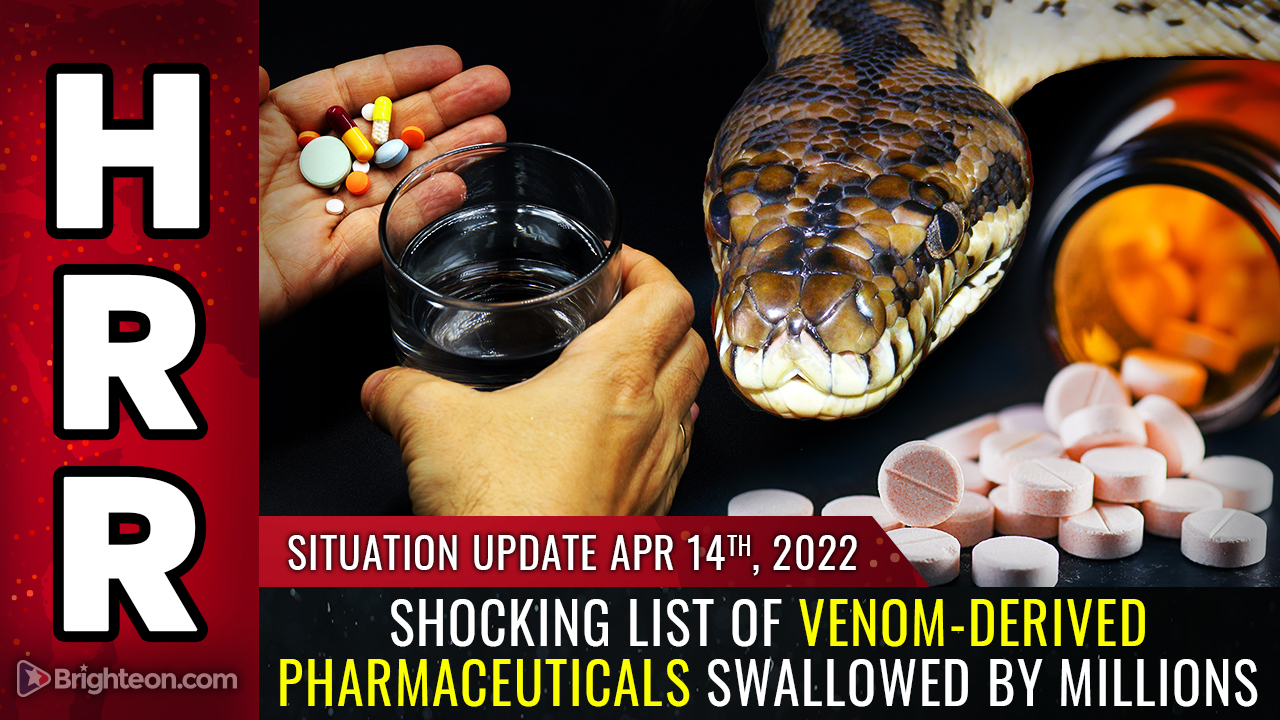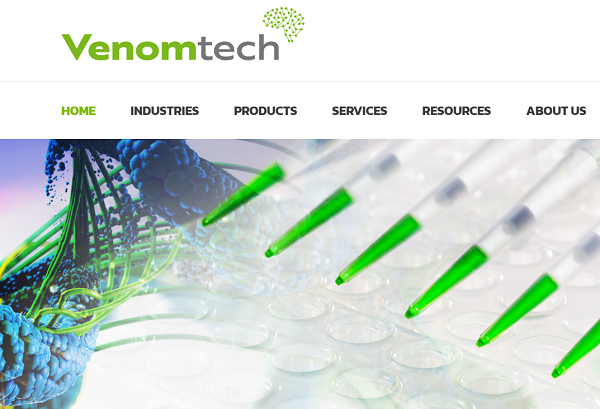The FDA has approved SIX prescription drugs that are made from snake venom
04/15/2022 / By Ethan Huff

The use of venom as medicine has been occurring for quite some time now, even if much of the world was unaware of it. Currently, there are six drugs made from the venom of snakes and other poisonous species that have approval from the U.S. Food and Drug Administration (FDA).
Captopril, an angiotensin-converting enzyme (ACE) inhibitor, is FDA-approved for use in treating high blood pressure, as well as to reduce the risk of heart failure following a heart attack. Its primary constituent comes from a species of pit viper found in Brazil.
Byetta, which is part of a new wave of drugs designed to lower blood glucose in patients with type 2 diabetes, is another snake venom-containing drug with FDA approval. Its main ingredient is exendin-4, which is found in the saliva of the Gila monster, a large lizard species native to the United States Southwest and northwestern Mexico.
Prialt, which is used by roughly 22 million adults in the U.S. who suffer from severe and chronic pain, could not be made without the venom of cone snails.
This is merely a small sampling of the many potential uses for venom that are either currently approved, in the works, or slated for possible research. Fifteen percent of the world’s animals produce venom, it turns out. And the World Economic Forum (WEF) told us back in 2018 that “we have really only just begun to scratch the surface of their potential contribution to medicine.”
Safe or not, snake venom is used in all sorts of emerging drug treatments
Not only is snake venom used to make pharmaceutical drugs, but it is also used for research purposes to learn more about how drugs work and how they interact with the human body.
Venomics expert Dr. Mandë Holford, who teaches chemistry at the Hunter College and City University of New York (CUNY) Graduate Center, told the WEF in 2018 that snake venom has “ushered in a whole new way for pharmaceutical industries to treat pain, they are now looking for things that target something other than opioid receptors.”
One of the reasons why venom works so well in drugs is because it works so well in the creatures it is derived from to keep them protected against predators. Humans can benefit from this as well, apparently, since venom can be manipulated to target pathogenic predators.
Snake venom was used even in traditional and ancient medicine systems in primitive form to treat all sorts of things. Medicinal plants were also used with it to target various diseases.
“I like to describe venom as a cluster bomb,” Holford is quoted as saying.
“Its job is to shut down the normal function of the prey and in doing so, it fans out (and) hits several targets, which is a great thing for pharmaceutical development because you have several avenues to explore. Because it’s so fast acting, so potent and highly specific to its target, venom has all of the ingredients necessary for making a drug.”
Holford’s specialty has been to investigate how cone snail venom might be useful in developing new treatments for chronic pain and cancer. The peptide compounds contained inside of it appear to target tumors, for instance.
“These peptides have a particular structure and that structure dictates their molecular target,” Holford said. “So when we get the primary sequence, we look for those codes that indicate what the structure of this peptide would be like.”
“Then we use that as a clue to try to understand if it’s going to hit, let’s say, for example, potassium channels versus sodium channels versus calcium channels, all three of which have different functions.”
More related news can be found at Medicine.news.
Sources for this article include:
Submit a correction >>
Tagged Under:
Big Pharma, deception, FDA, ingredients, peptides, pharmaceutical fraud, pharmaceuticals, poison, Prescription drugs, snake venom, toxins, traitors
This article may contain statements that reflect the opinion of the author
RECENT NEWS & ARTICLES
COPYRIGHT © 2022 PharmaSnakes.com
All content posted on this site is protected under Free Speech. PharmaSnakes.com is not responsible for content written by contributing authors. The information on this site is provided for educational and entertainment purposes only. It is not intended as a substitute for professional advice of any kind. PharmaSnakes.com assumes no responsibility for the use or misuse of this material. All trademarks, registered trademarks and service marks mentioned on this site are the property of their respective owners.















